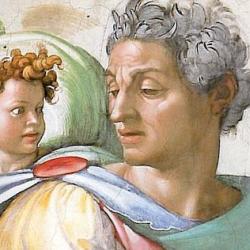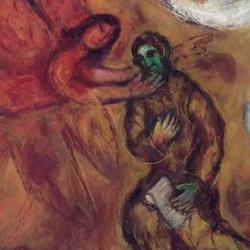INTRODUCTION
Isaiah warns Judah not to trust man (2:22), and then gives the reason: Yahweh plans to remove all the powerful men from Jerusalem and Judah (3:1).
THE TEXT
“For behold, the Lord, the LORD of hosts, takes away from Jerusalem and from Judah the stock and the store, the whole supply of bread and the whole supply of water; the mighty man and the man of war, the judge and the prophet, and the diviner and the elder . . . .” (Isaiah 3:1-15).
HEADLESS PEOPLE
Yahweh first threatens to remove basic supplies from Judah and Jerusalem – bread and water (v. 1). Judah is going to be thrust into a wilderness, and this time there will be no manna and no water from the Rock. Literally, the Lord may be threatening to send a siege against Jerusalem. At the same time, Yahweh will take away all the leaders of the nation (vv. 2-3). Eleven categories of leaders will be removed, leaders in every area of life – from military leaders to judges to royal counselors to craftsmen. The people of Jerusalem won’t be able to find a prophet, but they also won’t be able to find a good plumber. The threat against the food supply and the threat against the leaders are connected, practically and symbolically. Without military commanders, Judah will not be able to protect herself from invading enemies; symbolically, leaders are as essential to a community as bread and water.
CHILD MASTERS
In place of competent, mature, adult leaders, Yahweh will give Judah children to rule them (vv. 4, 12). The word translated as “capricious children” comes from a verb meaning “to treat severely,” which is used to describe Yahweh’s “mockery” and abuse of Egypt (Exodus 10:2; cf. Numbers 22:29; Judges 19:25). In place of careful and sober selection of rulers, the people will elevate anyone who has a cloak, anyone who dresses for the part (vv. 6-7). As a result, Jerusalem will be reduced to social turmoil. Neighbors will oppress neighbors, the young will attack the old, and servants will rebel against masters (v. 5). Without faithful leadership, Judah collapses into chaos.
REBELS AGAINST GLORY
Yahweh is the one who is going to remove leaders (vv. 1-3), and He is the one who is going to elevate oppressors (v. 4). This recycling of elites is Yahweh’s judgment for Jerusalem’s stumble and Judah’s fall (v. 8). Judah has spoken and acted against Yahweh, rebelled against “the eyes of His glory” in the temple in Jerusalem (v. 8; cf. 1 Kings 9:3). The coming turmoil is just payment for Judah’s actions (v. 9). As Noah was preserved in the midst of a corrupt generation, so the righteous will eat the fruit of their righteousness (v. 10). But things will go badly for the wicked (v. 11).
YAHWEH’S COURT
Bad rulers are a judgment from Yahweh. But Yahweh also promises to judge bad rulers. He brings a case against them, and summons them to court (v. 13). The charges are already familiar from the first chapters of Isaiah. Elders and princes have “devoured the vineyard” (v. 14), that is, they have not left anything for the poor to glean. Beyond that, they plunder the little that the poor have (14). They trample the poor in hostility, and grind them like wheat in a mill (v. 15), squeezing the life out of the poor for their own gain. Master Yahweh of Armies, who defends the helpless, will not stand and watch. He will bare His arm to deliver the oppressed.










